Religion & Society History
Over the last ten years, we have grown from a small passion project with no full-time personnel to a program with an expansive vision, a wide network of partners, and a dedicated team. This is our journey.
The Beginning
In March 2011, the Aspen Institute’s Justice and Society Program, under the direction of Executive Director Meryl J. Chertoff, held a day-long conference, “America the Inclusive” in partnership with the Chicago-based InterFaith Youth Core (now Interfaith America). The meeting was called to address the increasingly polarizing religious rhetoric in America, particularly toward Muslims, which Chertoff saw as similar to the antisemitism seen during World War II. In 2012, largely due to the enthusiasm of participants in that initial conference, the Aspen Institute’s Inclusive America Project (IAP) was formed. The project aimed to be a high-level nonpartisan project focusing on five key sectors: youth development organizations, higher education, media, religiously affiliated organizations, and government agencies.
Inclusive America Project (IAP)
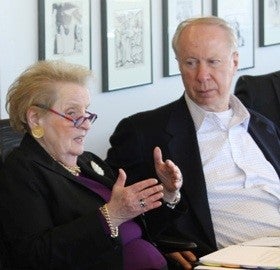 Former Secretary of State Madeleine Albright and Harvard Kennedy School professor David Gergen served as co-chairs and IAP brought together a distinguished panel of leaders in those five sectors for full-day meetings at the Aspen Institute headquarters in December 2012 and April 2013. Panelists collaborated to author Principled Pluralism, a white paper on proven strategies to increase respect for diverse religious identities in the public sphere, foster positive interfaith interactions, and form productive partnerships among people of different faiths in the service of the common good.
Former Secretary of State Madeleine Albright and Harvard Kennedy School professor David Gergen served as co-chairs and IAP brought together a distinguished panel of leaders in those five sectors for full-day meetings at the Aspen Institute headquarters in December 2012 and April 2013. Panelists collaborated to author Principled Pluralism, a white paper on proven strategies to increase respect for diverse religious identities in the public sphere, foster positive interfaith interactions, and form productive partnerships among people of different faiths in the service of the common good.
In the years to follow, IAP worked on additional publications such as Interfaith Engagement in West Michigan and Religious Diversity and Youth Development. These and other early publications continue to shape and inform our work.
A New Urgency
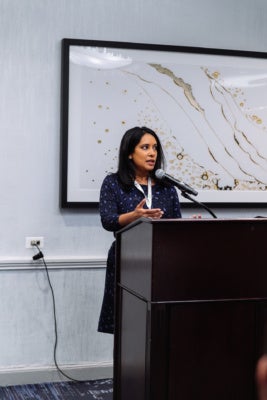 The intensified rhetoric of the 2016 election year moved Meryl Chertoff to dedicate more resources to the passion project she had kept alive alongside her main focus in the Justice & Society Program. She hired Zeenat Rahman (now the Executive Director of the University of Chicago’s Institute of Politics) to direct the project, and Allison K. Ralph, Ph.D., first as consulting editor and eventually as Assistant Director.
The intensified rhetoric of the 2016 election year moved Meryl Chertoff to dedicate more resources to the passion project she had kept alive alongside her main focus in the Justice & Society Program. She hired Zeenat Rahman (now the Executive Director of the University of Chicago’s Institute of Politics) to direct the project, and Allison K. Ralph, Ph.D., first as consulting editor and eventually as Assistant Director.
In February 2018, IAP released a new set of essays, Pluralism in Peril. This collection offers effective tools and strategies from community and interfaith leaders, philanthropists, and academics to build a more resilient, trust-based environment that fully incorporates American religious minorities. The collection also offers a vision for a truly pluralist future.
From 2018 to 2021, Zeenat and Allison developed a strategy focused on creating a national infrastructure to foster multi-stakeholder and cross-sector connections, with the ultimate aim of building and sustaining the field of religious pluralism. In October 2018, the project held its first multi-stakeholder gathering, which resulted in Conscience, Community and Citizenship, a report which provides takeaways on the specific skills and competencies needed to engage in a pluralistic and democratic society.
A New Chapter: The Religion & Society Program
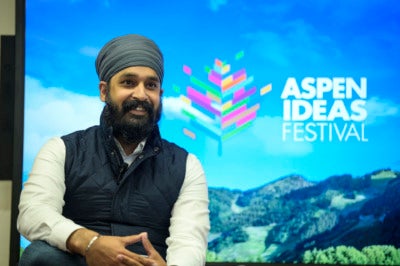
In mid-2021, IAP welcomed public scholar and champion of religious pluralism Dr. Simran Jeet Singh to the team as its new Executive Director. In 2022, the Inclusive America Project rebranded as the Aspen Institute’s Religion and Society Program. Together, these changes mark a new chapter in the Program’s pursuit of an inclusive, just, and equitable society.
Today, the Religion & Society Program envisions a society where religious and non-religious people thrive, respecting and engaging together across beliefs. The Program’s mission is to strengthen the understanding of religion’s role in advancing equity and the common good. By emphasizing network and community building, the Program is creating and amplifying connections that can break down barriers for generations to come.
Mobilizing, Galvanizing, Captivating, & Connecting
The Program focuses seven components paramount to religious pluralism. Each is important and valuable on its own but when brought together, create the infrastructure for a society with thriving religious pluralism. The seven components are:
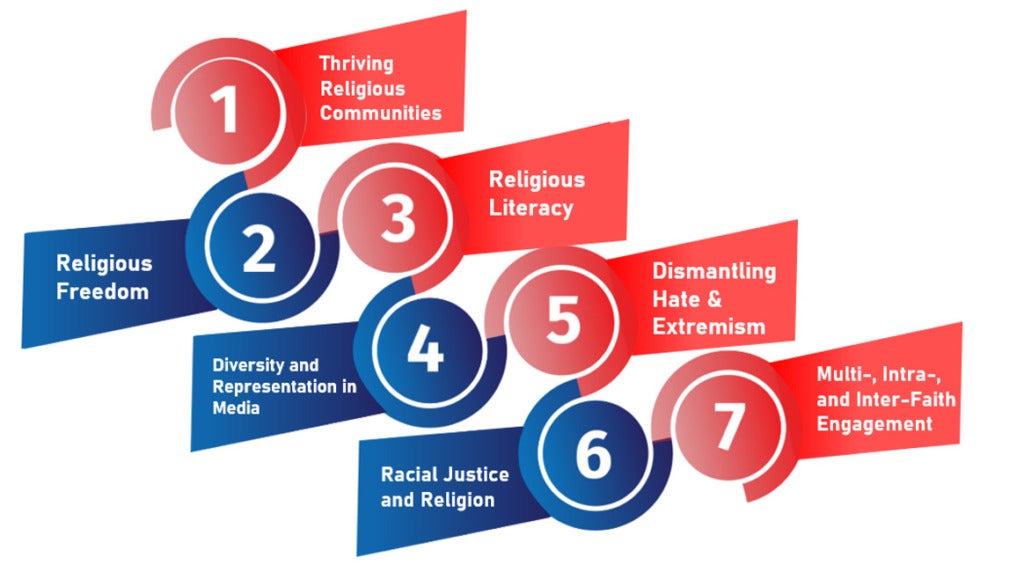
The Program has three core initiatives that collectively advance the component fields of religious pluralism: the Powering Pluralism Network, the Religious Pluralism Funders Circle, and our research initiatives.
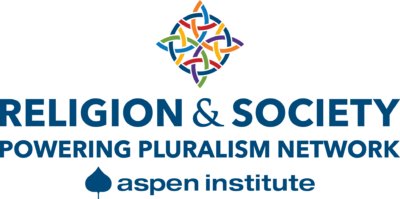 The Powering Pluralism Network mobilizes leadership and connects allied communities. The invitation-only Network is made up of faith and civic leaders, academics, and other key players with seven cohorts each focused on one of the seven components within the broad field of religious pluralism. Each cohort meets over 3-6 months to share knowledge, make connections, and create a resource for a public audience. These resources includ
The Powering Pluralism Network mobilizes leadership and connects allied communities. The invitation-only Network is made up of faith and civic leaders, academics, and other key players with seven cohorts each focused on one of the seven components within the broad field of religious pluralism. Each cohort meets over 3-6 months to share knowledge, make connections, and create a resource for a public audience. These resources includ
e op-eds, tools for philanthropic and government leaders, and recommendations for community and faith leaders. Members of each cohort join the Network and receive access to exclusive opportunities and resources that build their capacity, encourage collaboration, and prompt peer learning.
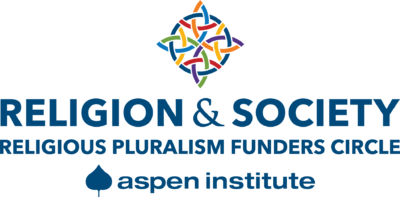
The Religious Pluralism Funders Circle is a diverse network of over 50 funders and funder-affinity organizations who share an interest in and support the field of religious pluralism. The Circle also provides a connection point between philanthropic leaders and those in other sectors who work on issues related to religious pluralism, such as academia, civil society, faith institutions, and government.
Scholarship is the third core area of our work. Our research initiatives build a foundation of thought leadership for the field of religious pluralism and help create a shared language for others engaging in the field. Original works are authored by staff, collaborating research partners, and by experts hosted as IAP Fellows. Current fellows include Asma T. Uddin, Fellow for Religious Freedom, Brad R. Fulton, Fellow for Faith-Based Philanthropy, and Kate Soules, Fellow of Religious Literacy Evaluation. In recent years, we have published on religious literacy, religion and philanthropy, the system of religious pluralism, religious freedom, and many other topics related to religious pluralism.
For more, visit aspeninstitute.org/religion.